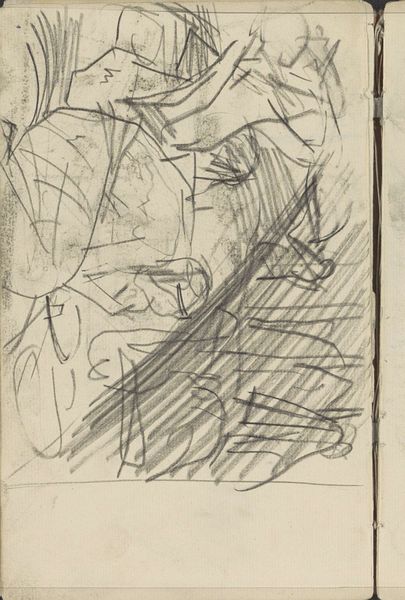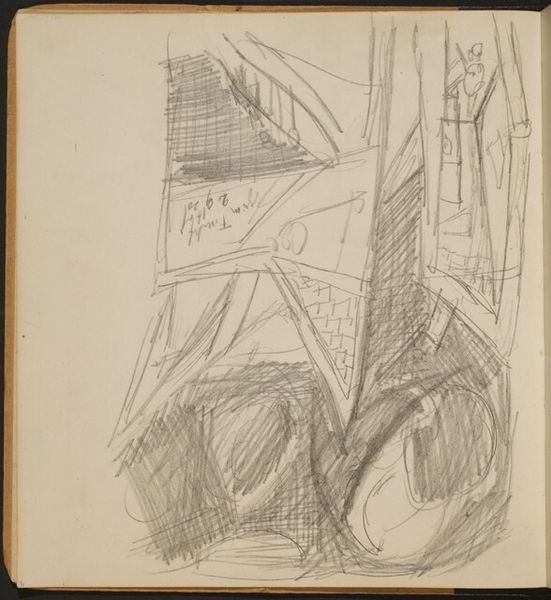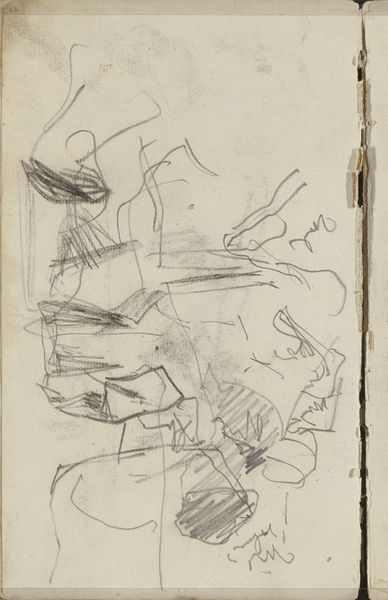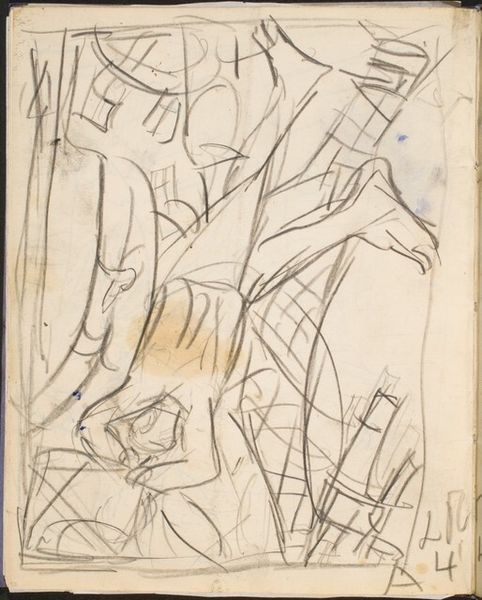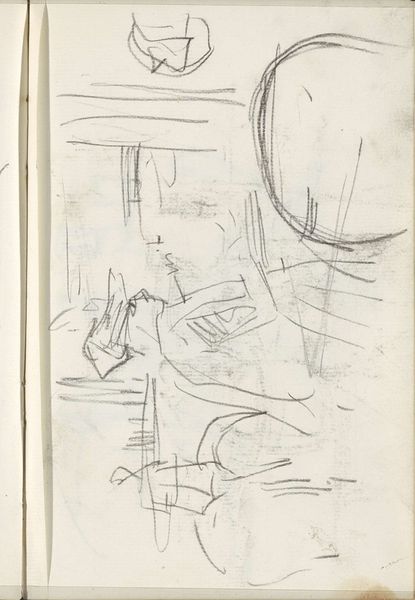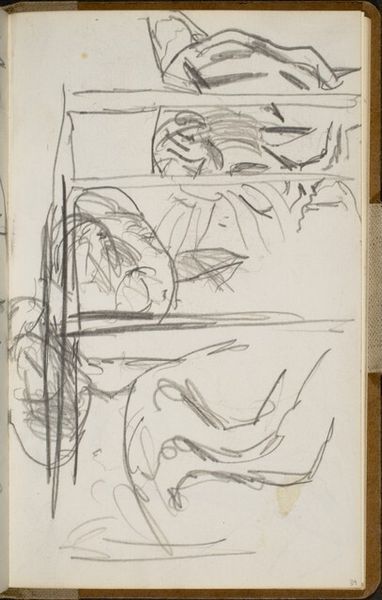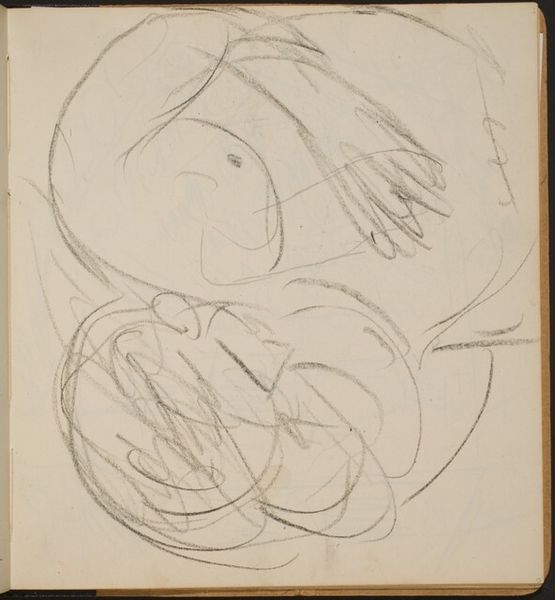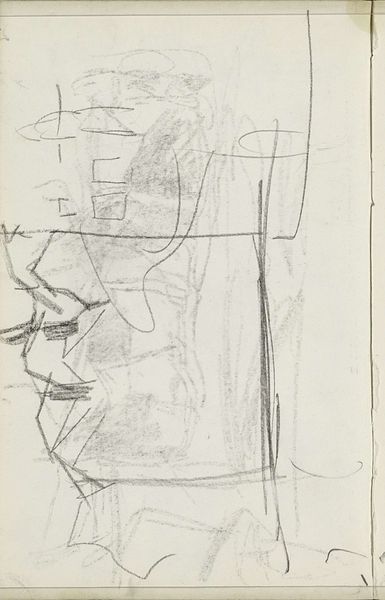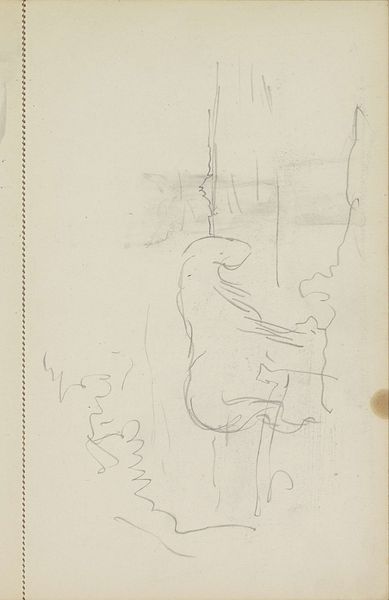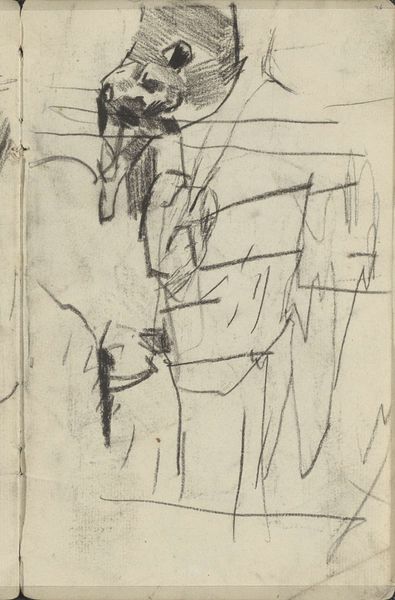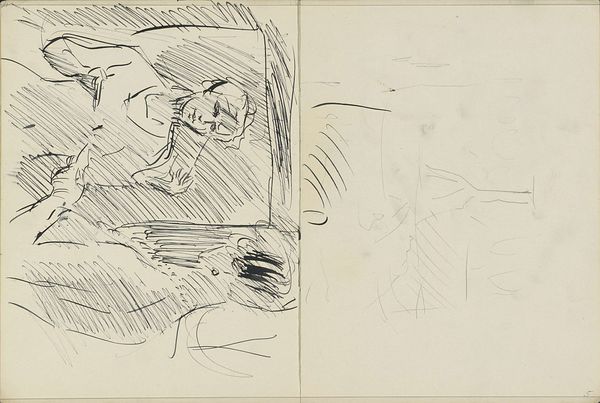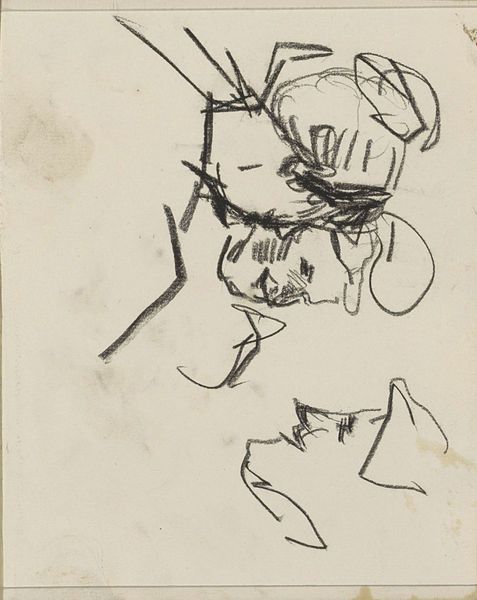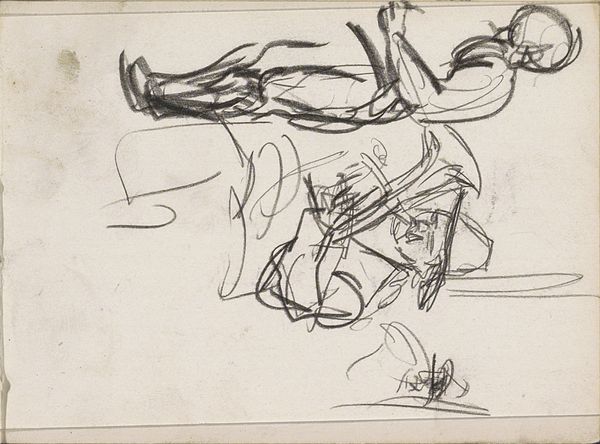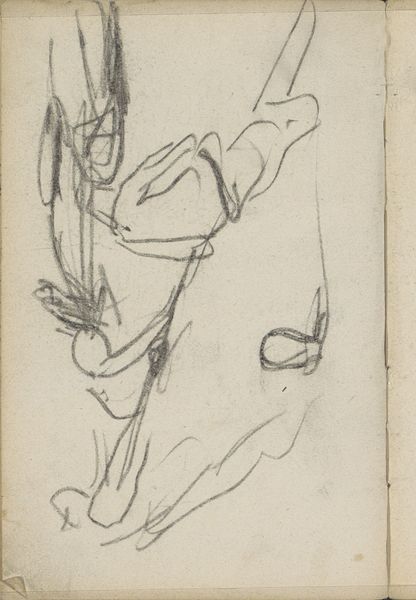![Skizze - Gesicht (Sketch of a Face) [p. 42] by Max Beckmann](/_next/image?url=https%3A%2F%2Fd2w8kbdekdi1gv.cloudfront.net%2FeyJidWNrZXQiOiAiYXJ0ZXJhLWltYWdlcy1idWNrZXQiLCAia2V5IjogImFydHdvcmtzL2Y3NTYzMTUyLTBiNTctNDRiYi1iMDk2LTU3MzUyNGQzNGZlYy9mNzU2MzE1Mi0wYjU3LTQ0YmItYjA5Ni01NzM1MjRkMzRmZWNfZnVsbC5qcGciLCAiZWRpdHMiOiB7InJlc2l6ZSI6IHsid2lkdGgiOiAxOTIwLCAiaGVpZ2h0IjogMTkyMCwgImZpdCI6ICJpbnNpZGUifX19&w=1080&q=75)
Copyright: National Gallery of Art: CC0 1.0
Max Beckmann made this pencil sketch, titled "Sketch of a Face," sometime during his career as a modern artist in Germany. Beckmann, associated with the New Objectivity movement, often portrayed the psychological impact of war and social upheaval on individuals. This sketch, with its fragmented lines and distorted features, conveys a sense of unease and disorientation. The face appears as a collection of disjointed shapes, reflecting the fractured reality of post-World War I Germany. The lack of clear definition could symbolize the loss of identity and the struggle for meaning in a rapidly changing world. Beckmann's style challenges traditional notions of portraiture, reflecting a broader critique of societal norms and the institutions that uphold them. To fully understand this work, we need to consider the social and political context in which it was created. Archival research into Beckmann's life, as well as studies of the cultural movements of the time, can shed light on the artist's intentions and the ways in which his work reflects the anxieties and aspirations of his era.
Comments
No comments
Be the first to comment and join the conversation on the ultimate creative platform.
